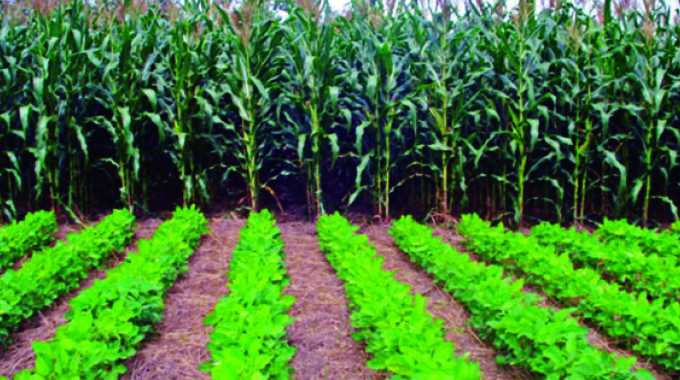
The ManicaPost

MANICALAND is acutely vulnerable to the effects of climate change as it has a largely agrarian economy that heavily relies on rainfall.
Climate change is throwing farmers some unexpected curve balls in the form of exacerbated heat waves, wild fires, floods and droughts, among other things.
A large proportion of our population is dependent on rain-fed agriculture as a source of income and subsistence, hence the current changes to the rainfall patterns in the province have high potential for detrimental socio-economic consequences.
The sporadic rainfall being received could devastate crop production and jeopardise the livelihood of many people, unless farmers recognise and adapt to the long-term changes.
Crops across the province are currently suffering from moisture stress as this season’s rainfall has been very sporadic.
At one moment we are experiencing a heavy downpour accompanied by strong winds, before the pendulum swings to the other extreme end and we go for weeks without receiving any rainfall.
For Manicaland, the extreme weather conditions have both been experienced during the current farming season as the effects of global warming takes its toll on the world.
Famed for its five agro-ecological regions that make farming across the province a pleasure, things are no longer looking so good for Manicaland as farmers have been caught off guard by the largely dry current season.
Dry spells have been experienced from November to date, resulting in crop moisture distress and poor pasture regeneration.
With the crops wilting, the livestock is starving as the pastures are dwindling.
The climate change we are seeing today has already been attributed to human activities, particularly the fact that increases in greenhouse gases is triggering a delay in seasonal rainfall, and therefore we are the ones who can minimise the impact of the scourge.
Understanding future changes in the seasonal cycle of precipitation over not just Manicaland but the rest of the country is crucial in establishing appropriate adaptation strategies.
We therefore require an improved understanding of the drivers behind future rainfall patterns.
In the recent past, Southern Africa has been experiencing a shorter rainfall season.
A shorter growing season means that crops that have been traditionally grown by farmers no longer have enough time to reach full maturity.
Farmers, therefore, are encouraged to switch toearly maturing and drought-resistant crops to improve their yields.
Many are already adapting to the changing climate by changing their selection of crops and the timing of their field operations.
Appropriate seed types that can withstand prolonged dry spells are now being manufactured by several seed companies to cushion farmers against the vagaries of shorter rainfall seasons.
Small grains that can tolerate long dry spells are also a good option.
Every farmer should also know that farming is a business and wholly depending on rainfall is as risky as putting one’s eggs in one basket.
Farmers should now invest in irrigation equipment at their farms and plots to ensure that their production goes on smoothly throughout the entire year.
Water harvesting and conservation agriculture should also provide relief for farmers.
Conservation agriculture is a farming approach that aims to reduce soil degradation and conserve soil moisture.
It promotes maintenance of a permanent soil cover and minimum soil disturbance in a way that contributes to increased water and nutrient use efficiency to improve crop production.
As human beings, we have caused major climate changes to happen and we have set in motion more changes to come.
However, if we start taking care of our environment today, the rise in global temperatures will begin to flatten within a few years and maybe, just maybe, our rainfall patterns will become more predictable.
We are the masters of our own destiny.



